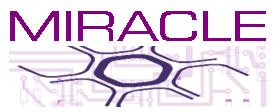Cancer remains a prominent health concern afflicting modern societies. Continuous innovations and introduction of new technologies are essential to level or even reduce current healthcare spending. As the analysis of circulating tumour cells in blood (CTCs) or disseminating tumour cells in bone marrow (DTCs) is most promising in this respect, MIRACLE aims to develop a low-cost, fully automated, integrated lab-on-a-chip (LOC) system for the isolation, counting and characterization of such occult tumour cells starting directly from clinical samples.
Traditional cancer therapy is based on the biology of the primary tumour. However, it is usually the tumour dissemination to other parts of the body that results in a negative prognosis and death. Occult tumour cells persisting in the body after primary therapy, in a dormant or low proliferative state, are responsible for disease relapse. Such cells, not detectable by current routine diagnostics, likely play a pivotal role as they may change biology and marker expression compared to the primary tumour. For this reason, the detection and characterization of CTCs and DTCs of cancer patients are believed to be of high therapeutic and prognostic importance. Already, the number of CTC is being used within clinical trials as a basis for early therapy stratification and monitoring instead of, or in comparison to, expensive and adverse radiological imaging techniques which are informative only at later follow up time points. Diagnosis and/or characterisation of occult tumour cells is believed to enable the clinician to exchange an inefficient therapy regimen at an early time point, thus addressing an individualised therapeutic approach, coined as theranostics.
